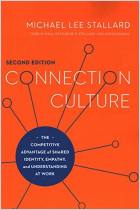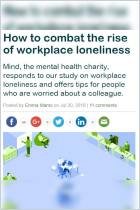Using an ATM, buying merchandise online or having your dinner delivered are super convenient, but high tech has a downside: With less face-to-face contact, people suffer disconnection, isolation and loneliness. Isolation’s negative consequences prove particularly severe in the workplace. Ryan Jenkins and Steven Van Cohen examine the cultural consequences of tech-induced loneliness and lack of human connection, and they propose ways to return humanity to the fore. Their deftly written book will compel you to reflect on your daily behavior and how you can help society – and yourself – become human once more.
An epidemic of loneliness threatens society’s foundation.
Loneliness has always been part of the human condition, but it is reaching epidemic proportions in today’s workforce, causing significant harm to your employees and their performance. In fact, loneliness reduces life expectancy by an alarming 15 years. Roughly 70% of workers worldwide experience loneliness monthly, and 55% suffer it weekly. Close to 95% of leaders report increased loneliness among remote team members.
Though most people spend a large part of their week at work, little research focuses on how loneliness manifests at the office. Feeling that you lack a meaningful connection to your colleagues, managers, company or duties should not embarrass you, but it does leave you without a vital component of being human.
People need each other; interaction and collaboration are inherent to the human condition. People get things done by cooperating. As loneliness escalates, it drives people further apart and damages society.
Embracing technology often means prioritizing convenience over connection.
Society changed...
Ryan Jenkins, an international keynote speaker, and Steven Van Cohen, a consultant and coach, co-founded LessLonely.com.



















Comment on this summary or 开始讨论